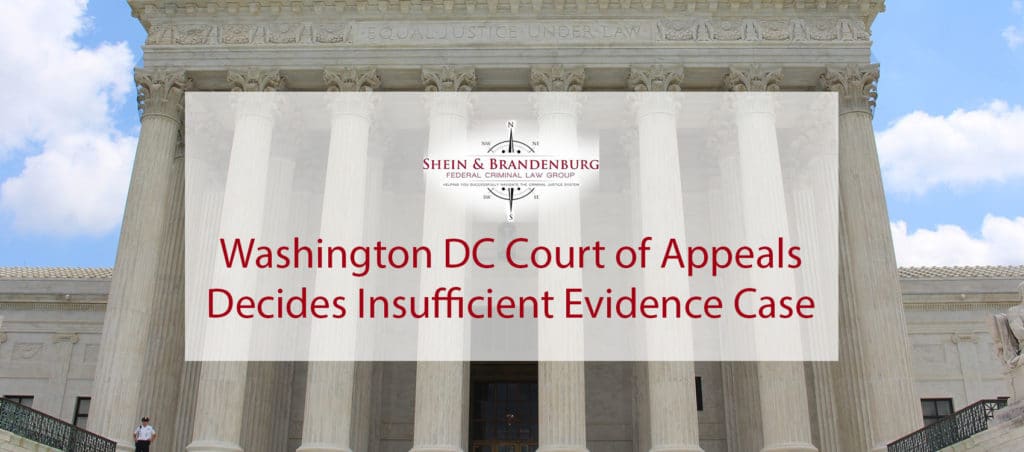Insufficient Evidence In Appeals Case
An appellate case was recently heard by the Washington DC Court of Appeals, which was initiated by two defendants who had been convicted of possession with intent to distribute heroin and a third individual who was convicted of conspiracy to launder money. This case represents an example of cases involving insufficient evidence by the prosecution and how the failure by the prosecution to satisfy these requirements can lead to appeals that successfully reduce the potential penalties faced by defendants.
If you been convicted of a federal criminal offense and do not believe that there is an adequate amount of evidence in your case, it is often a wise idea to speak with a skilled appellate lawyer.
The Evidence Used in the Case
To convict the defendants in this case, prosecution at the District Court level relied primarily on information from surveillance. In 2012, the government had begun investigating a drug dealer who was recently released from prison. After utilizing traditional surveillance techniques, the government applied for two wiretaps on the man’s cell phone. As a result, prosecution primarily relied on these recorded conversations with three defendants to obtain a conviction.
As the DC Court of Appeals found, however, this evidence did not satisfy the burden of proof. Instead, the Court of Appeals found that there was insufficient proof beyond a reasonable doubt that the two appellants had knowingly entered into a conspiracy with the intent to further the objective of narcotic distribution. The Court, however, held that the evidence used in the case was not as ambiguous as the appellants claimed.
The Court’s Holding on Mandatory Minimum Requirements
The most memorable part of this decision involves how the Court of Appeals ruled on issues involving mandatory minimum requirements. The Court of Appeals judge in the case found that sentencing a defendant to the mandatory minimum requires the jury to find that the quantity to satisfy this threshold must be attributable to a defendant on an individual basis rather than the conspiracy as a whole.
This decision was made after the Circuit Court noted that there is a currently a split about whether a jury finding of whether mandatory minimums are triggered at an individual level or on the level of the entire conspiracy. The Circuit Court first determined that the Supreme Court recognized that juries must determine facts. The Circuit Court then noted that all Circuit Courts have also either adopted or followed an individualized approach.
As a result, the DC Circuit Court subsequently held that an individualized analysis was appropriate for deciding how to sentence individuals in mandatory minimum drug cases. As a result, the Circuit Court instructed the district court to re-examine the sentence that one of the defendants had received.
The Appeal Court’s Holding
Considering the appeal in question, the Circuit Court Judge held that the defendant’s conviction of money laundering was based on insufficient evidence. As a result, the Circuit Court judge overruled the court’s previous conviction on this charge.
Based on similar reasons, the District Court also found that the trial judge improperly sentenced each of the appellants to a mandatory minimum for entering a conspiracy to distribute 100 grams or greater of heroin.
The Circuit Court further held that there was insufficient evidence on which to base a money-laundering conspiracy conviction. The Court’s decision in this area was based on a finding that there was no evidence that one of the defendants who had attempted to hide the funds were involved in this conviction. As a result, the Circuit Court found that the district court had failed to satisfy its burden of proof in making this conviction.
Speak with a Skilled Federal Criminal Appeal Lawyer
If you need the assistance of an experienced federal criminal appeal attorney, do not hesitate to contact the Federal Criminal Law Center. Our legal counsel understands the complicated issues involved with the appeal process and will remain committed to making sure that your case resolves in the best possible manner.


